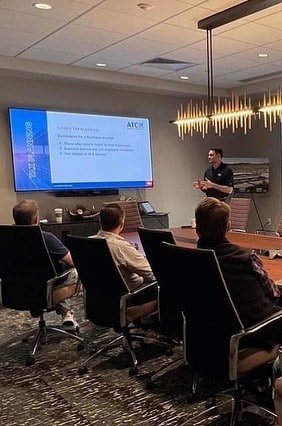State Sales Tax, Use Tax, Property Tax, Registration Fees
Many states assess sales and use tax, registration fee, excise tax, property tax, etc. It’s not uncommon to owe multiple taxes either on the acquisition of an aircraft and an ongoing annual assessment. Below is a summary of the common assessments on aircraft.
Registration fee
Some states assess a registration fee. Sometimes they assess a flat fee and sometimes the fee is based on the value of the plane. These fees are usually due annually on aircraft that meet the registration requirement. Note: This type of fee is not going to be assessed to aircraft that happen to land in a state once in a while. There has to be some continued, regular presence in the state for this to apply.
Personal property tax
Some states assess annual property tax on aircraft. This is no different than real estate tax on a building. Similarly, this assessment is only applicable to an airplane with a significant presence in that state. Some states, like Texas, exempt strictly personal use aircraft.
Excise Tax
Some states assess a one-time excise tax on the purchase of the aircraft. This tax is assessed based on the domicile of the aircraft.
Sales Tax
This is a one-time tax assessed on the purchase of an aircraft. This tax can be “easily” avoided by utilizing various exemptions, or closing the transaction in a tax friendly state.
Use Tax
This tax complements the sales tax. It is typically the same rate and is assessed to aircraft that are purchased out of state and then brought into a state for use. This tax is assessed based on where the aircraft lives – not where the LLC is set up, not where the owner lives.
This is the tax that surprises most aircraft owners. They are often told to close the transaction in Delaware or Oregon, for example, which does not assess sales tax on an aircraft purchase. What many aircraft owners fail to understand is that when they fly the plane home to California, for example, California will assess a use tax, as the plane is being used in the state. Exemptions are available to avoid the use tax, or defer the tax and pay it over time. Planning prior to closing is critical.







